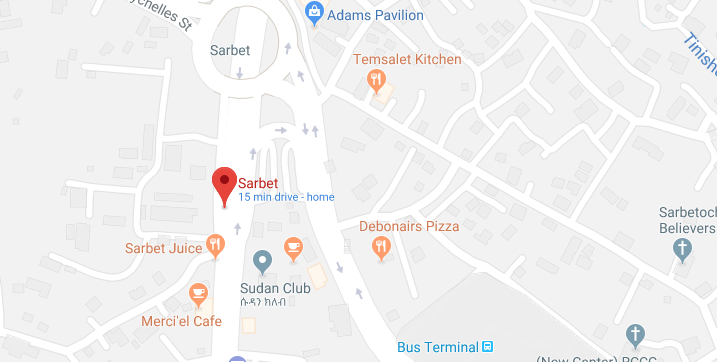
Mar 4 , 2023
By Asseged G. Medhin
Leadership in complex situations requires a commitment to changing the business landscape. The gear shifters and crisis managers are best suited to lead companies through the storm and stick of adversity. Leaders can build trust and effectively navigate complex situations by demonstrating fairness, openness, congruence, integrity, honesty, and respect for others, writes Asseged Gebremedhin, an insurance broker and consultant (assegedg42@gmail.com)
In the world of business, the roles of management and leadership are often discussed and debated. While some scholars argue that management is about coping with complexity, others believe that leadership is about dealing with change. However, balancing the two is the optimal approach to handling these challenges. Managers must possess the skill of managing complexity, while leaders must be able to navigate change.
Leaders must usher in change quickly and decisively, even if it is met with resistance. A leader must be the owner of the change roadmap for the company and must have a fresh outlook to navigate complex situations. However, managers often fall short in matching resources, particularly human resources, due to their short-sightedness in leadership during complexity. Leadership myopia can lead to a lack of action on necessary changes.
Some writers believe that profit optimisation should be the priority for managers. In contrast, others argue that a value-driven manager can set the tone for a value system within the organisation. Regardless, even value-driven managers who prioritise shareholder dividends must also consider the effects of a green-business landscape and the adverse effects of complexity. This requires extraordinary leadership skills in sustainability.
In complex situations, the most crucial aspect is treating and humanising the employees who must navigate the troubled waters.
Leaders like Jim Tregbig of Tandom and JRD Tata believed in treating every person as a human being. Cooper Procter of Procter and Gamble ran the company with the slogan, "Do what is right," while Theodore Vail of AT&T stressed superior customer service. Robert Townsend even suggested that companies publish the Ten Commandments as their policy manual. These approaches create an organisational culture that can result in functions being carried out differently, each unique to the situation.
The leadership style at the top of an organisation determines how it is run. The leader's direction sets the organisation on a path and travels at its chosen pace. In this way, the leader becomes a change agent - changing vision, methods, and bottom-line results.
The leader in a complex situation must have a clear way out. It is the big picture, larger than life in complexity, that the leader is drawn to and tries to realise. This vision will guide the leader to find a critical path within the initially unsought complexity. This path becomes a magnificent obsession that fuels and serves as an engine for the vision. By iteratively engaging with the course, the adverse impact of complexity is reduced until the organisation reaches the green-business landscape.
However, to actualise the vision, the leader must make decisions. Decision-making becomes an important activity, and one trait of a true leader is decisiveness. The impact of indecisiveness in complex situations can be detrimental to the business and even result in a company's loss.
In complex situations, leaders must face paradoxes requiring enlightened decision-making. Jack Welch once said, "Effective leadership involves accepting and managing paradox." Welch suggests that leaders must first accept the paradoxical situation and then plan for its management. Leaders must view every problem, even paradoxes, as opportunities to bring them closer to the critical path in complex situations. Leaders should write in all business kits, "We have no problems here; all are opportunities." By doing so, they can convince and lead their followers differently than usual until the situation is reversed.
In the realm of leadership, trust is the glue that holds it all together. Without it, a leader's attempts at problem-solving or opportunity-feeding will fall flat. To build trust, a leader must demonstrate certain qualities, such as respect for others, fairness, openness, unity, integrity, and honesty.
Respect for others is the cornerstone of building relationships, and it comes from having a win-win attitude. A leader who sees plenty out there for everybody is more likely to gain the respect of his team and those who transact with him. Fairness is also essential, as a leader who seeks to win by making others lose will not be trusted or admired. In complex situations, a leader's words and actions must show a unique oneness and consistency, as double standards have no place in effective leadership.
Openness is another important quality for a leader, demonstrating a courageous and transparent transaction approach. When a leader has respect for others, a sense of fair play, and openness in transactions, congruence results. Consistency in actions and words is highly valued by followers, who also urge more effort from their leader in complex situations.
Honesty and integrity are the key ingredients to truth, and a leader who possesses these qualities is held in high esteem. Moral soundness and worthiness of trust are highly sought-after qualities in a leader. A lack of integrity is conspicuous; without it, a leader cannot effectively navigate changing adverse situations.
A leader's character and leadership style solves the puzzle in complex situations. Being brief, versatile, action-oriented, and assertive in oral communication is essential for a leader. Such traits lend dynamism to a leader, and followers highly value them. Flexibility is another essential quality, as situational leadership requires adapting to changing circumstances.
Kenneth Blanchard, Patricia Zigarmi, and Drea Zigarmi, in their book "Leadership and the One Minute Manager," pointed out that the situational manager uses different strokes for different folks. They direct when necessary, provide specific instructions, and closely supervise tasks. They switch to coaching when appropriate and are always focused on achieving their goals.
PUBLISHED ON
Mar 04,2023 [ VOL
23 , NO
1192]


Radar | Dec 16,2023

Radar | Jul 13,2024

Commentaries | Apr 24,2021

Viewpoints | Jul 23,2022

Fortune News | Sep 28,2019

Fortune News | Nov 21,2018

Verbatim | Apr 26,2025

Radar | Dec 25,2023

Fortune News | Sep 28,2019

Sunday with Eden | Jun 07,2025

My Opinion | 131451 Views | Aug 14,2021

My Opinion | 127803 Views | Aug 21,2021

My Opinion | 125783 Views | Sep 10,2021

My Opinion | 123419 Views | Aug 07,2021

Dec 22 , 2024 . By TIZITA SHEWAFERAW
Charged with transforming colossal state-owned enterprises into modern and competitiv...

Aug 18 , 2024 . By AKSAH ITALO
Although predictable Yonas Zerihun's job in the ride-hailing service is not immune to...

Jul 28 , 2024 . By TIZITA SHEWAFERAW
Unhabitual, perhaps too many, Samuel Gebreyohannes, 38, used to occasionally enjoy a couple of beers at breakfast. However, he recently swit...

Jul 13 , 2024 . By AKSAH ITALO
Investors who rely on tractors, trucks, and field vehicles for commuting, transporting commodities, and f...

Jun 28 , 2025
Meseret Damtie, the assertive auditor general, has never been shy about naming names...

Jun 21 , 2025
A well-worn adage says, “Budget is not destiny, but it is direction.” Examining t...

Jun 14 , 2025
Yet again, the Horn of Africa is bracing for trouble. A region already frayed by wars...

Jun 7 , 2025
Few promises shine brighter in Addis Abeba than the pledge of a roof for every family...

Jun 29 , 2025
Addis Abeba's first rains have coincided with a sweeping rise in private school tuition, prompting the city's education...

Jun 29 , 2025 . By BEZAWIT HULUAGER
Central Bank Governor Mamo Mihretu claimed a bold reconfiguration of monetary policy...

Jun 29 , 2025 . By BEZAWIT HULUAGER
The federal government is betting on a sweeping overhaul of the driver licensing regi...

Jun 29 , 2025 . By NAHOM AYELE
Gadaa Bank has listed 1.2 million shares on the Ethiopian Securities Exchange (ESX),...